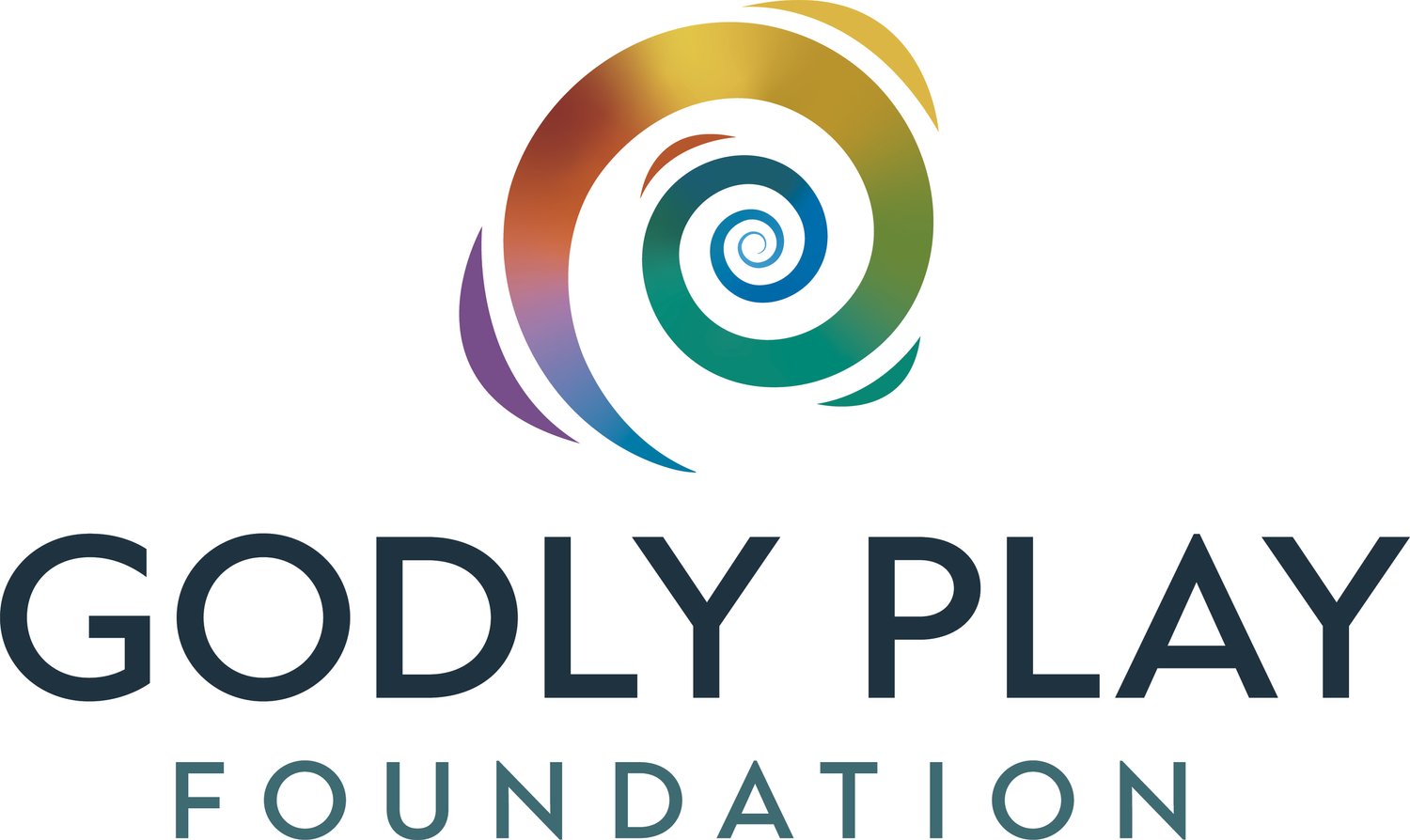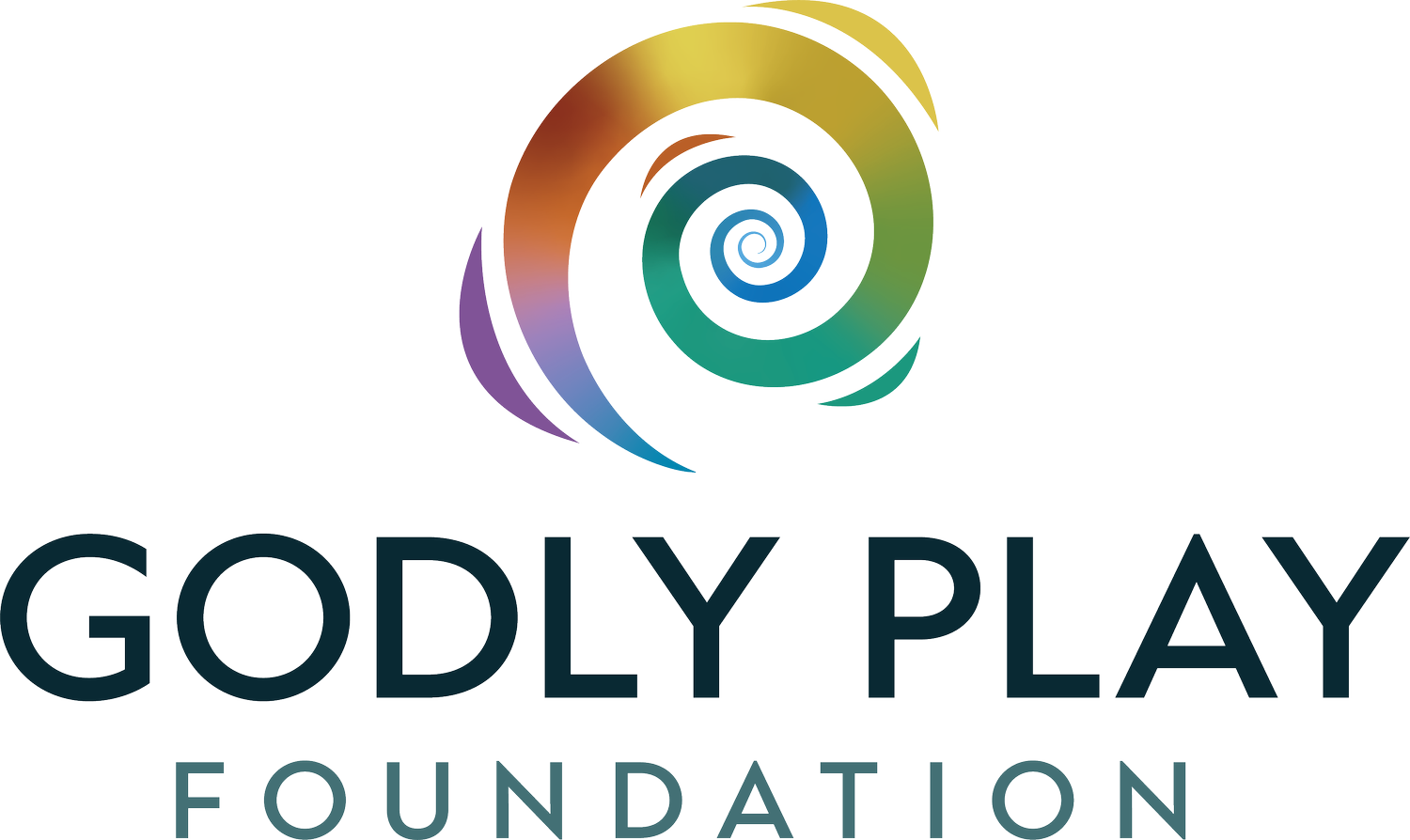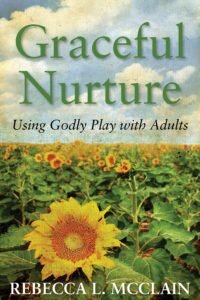Godly Play with Adults: A Graceful Nurture Review
By Alyssa Pasternak Post
$18.95. Paperback. ISBN-13: 9780898699678
Godly Play practitioners: Have you ever wondered how the richness and beauty experienced with children in Godly Play might be shared with adults? In Graceful Nurture: Using Godly Play with Adults, Rebecca L. McClain offers an invaluable resource in how to implement Godly Play with communities of adults. McClain presumes what many of us have sensed in our lives and ministries: that “Godly Play is an integrated and holistic model of Christian living for every age and stage of life” (xi) and that the work of passing on the Christian language system and creating meaning for one’s life from sacred stories and rituals is the work of all ages.
Graceful Nurture provides theoretical background as well as ample practical resources for introducing Godly Play with adults and is based on McClain’s extensive experience and training. The book begins with a few sections that lay the groundwork for concrete suggestions in sharing Godly Play with adults. McClain describes the current context of adult faith formation and makes claims about why Godly Play uniquely is poised to meet the needs of adult spirituality in our time. She then offers the general movements of a Godly Play session – getting ready, storytelling, wondering, working, feasting and sending – with honest considerations for a community of adults. Her introductory sections conclude with an overview of the stories recommended.
McClain organizes the main portion of her book into what she calls four short Courses. With sensitivity and creativity, each course is designed with a different target audience in mind. Each draws on the Godly Play story genres of sacred story, parable, liturgical action, and silence, while being formatted for various contexts.
Course I offers itself as a new member class for those preparing for baptism, confirmation, reception, or reaffirmation. Course II’s design considers families who are new to Godly Play. Course III provides a framework for a retreat experience. Course IV offers a way to implement Godly Play into a Sunday morning education or forum time.
In reading Graceful Nurture, my colleagues and I have found encouragement to experiment with introducing Godly Play into various adult spaces at our parish. Our initial gentle efforts hopefully will evolve into more sustained offerings, such as McClain describes in her courses. But we have found space in recent months to introduce one story from each of the genres into an adult meditation group as the teaching segment and to share The Great Family with Vestry, the parish’s lay leadership body.
The responses to these experiences are as encouraging and hope-filled as McClain’s work suggests. Adults have been able to name inner resistance; to give oneself liberty to think and to play; to slow down; to wonder and draw one’s own conclusions from the sacred story; to share original poetry and artwork; to participate in the mysterious work of God; and to be close to God in the beauty of it all.
This is magnificent and exciting work that I imagine could be played with in a variety of contexts. Parish leaders entrusted with nurturing and deepening adult spirituality certainly would find meaningful and practical suggestions in Graceful Nurture. I am thinking of faith formation directors, contemplative prayer leaders, directors of family ministry, clergy, hospital chaplains, ministers in retirement communities, and so forth. Schools who share Godly Play with children may find Course II especially beneficial in engaging parents and others in the adult community. Faith-based organizations that minister among adults also would find encouragement from McClain’s work for their unique contexts. In each case, leaders would need to be trained in the Godly Play method and to have access to Godly Play story materials.
With honesty and eloquence, McClain provides a springboard for our collective experimentation among communities of adults. As she writes, “We are just beginning to explore how to use Godly Play with adults, so now is the time to be creative and inventive. I hope you will let your own creativity enter into this new way. As we play and share experiences of what works best, we will all be blessed” (12). Graceful Nurture shows us a path forward in nurturing adult faith in our time.
Alyssa Pasternak Post is the Director of Children, Youth & Family Ministries at Saint James Episcopal Church in Lancaster, PA. She holds theology degrees from the University of Dayton (MA in Theological Studies) and from Wheeling Jesuit University (BA in Theology). A trained Godly Play storyteller, Alyssa delights in sharing the Christian language system with children through Godly Play’s method. When finding balance in life, she loves the way that playing with her children and being in nature draw her into the joy of present moment.





